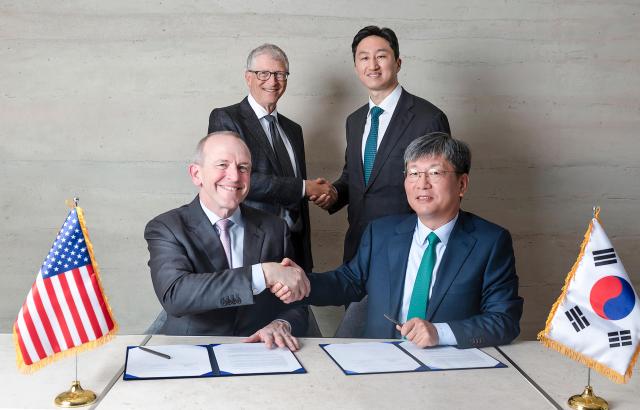
SEOUL, March 13 (AJP) - HD Hyundai Heavy Industries, a subsidiary of HD Hyundai, has signed an agreement with TerraPower, a U.S.-based small modular reactor (SMR) company, to enhance the manufacturing supply chain for sodium-cooled reactors, the company announced on Thursday.
The signing ceremony was attended by Chung Ki-sun, vice chairman of HD Hyundai; Won Kwang-sik, head of HD Hyundai Heavy Industries’ Ocean Energy Business Division; Bill Gates, founder of TerraPower; and Chris Levesque, the company’s chief executive.
The sodium-cooled fast reactor, a fourth-generation nuclear technology developed by TerraPower, generates electricity by using fast neutron fission to produce heat, which is then cooled by liquid sodium.
The reactor is noted for its high safety standards and advanced technology, producing roughly 40 percent less nuclear waste than conventional reactors, according to the company.
Under the terms of the agreement, HD Hyundai will leverage its manufacturing capabilities to support TerraPower’s efforts to expand the supply of sodium-cooled reactors. The South Korean company will research manufacturing technologies to supply key reactor components, which will be installed on land-based power generation facilities.
TerraPower is also developing another type of SMR, the Molten Chloride Fast Reactor (MCFR), designed for maritime applications.
HD Hyundai aims to develop a ship-based SMR model using MCFR technology by 2030, as part of its broader strategy to transition from traditional maritime fuels — such as bunker C oil and liquefied natural gas — to next-generation nuclear propulsion systems.
“This collaboration will enable us to expand our supply chain to meet growing energy demands and successfully build MCFRs,” Levesque said.
Copyright ⓒ Aju Press All rights reserved.

